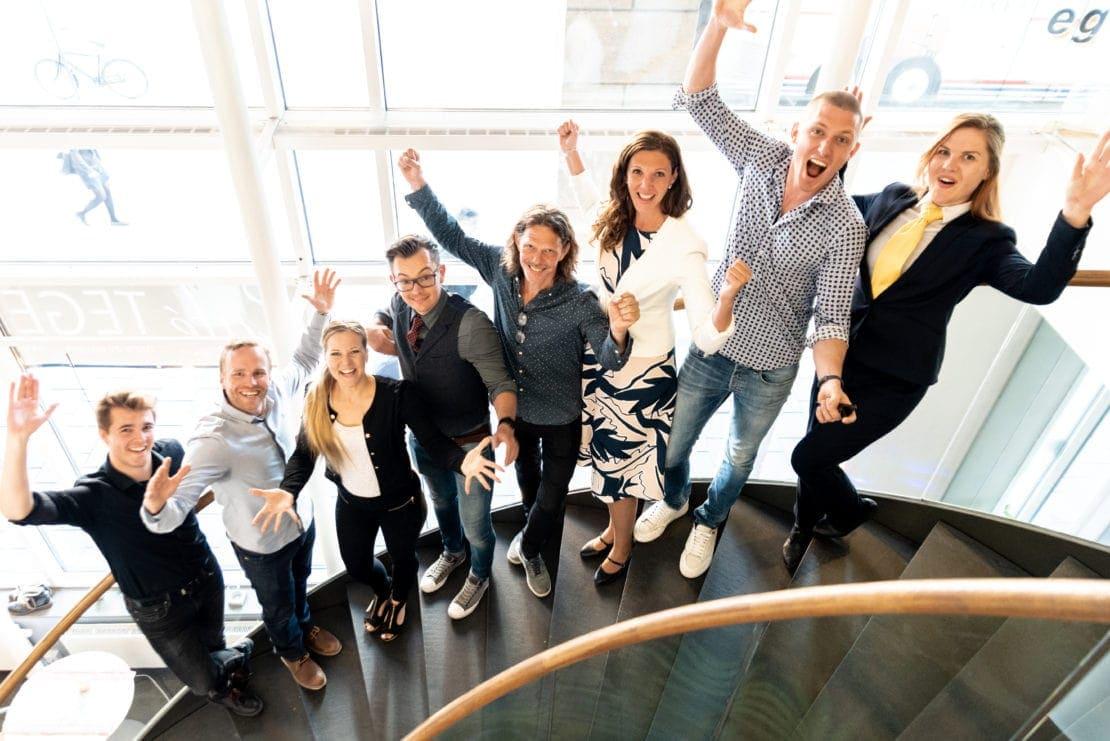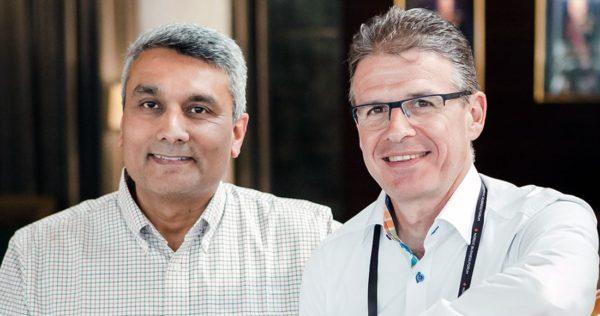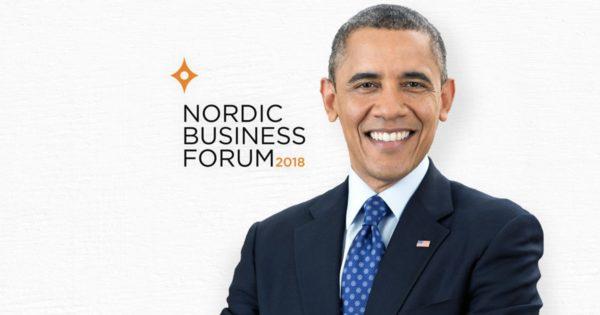20Jun2018
On June 4th, we hosted our second qualifying round of our Speaker Sourcing Contest in Stockholm. As with the previous round, 8 contestants competed for two spots in our Stockholm final in August. The speeches spanned the three themes of our Nordic Business Forum 2018 event: Strategy, Peak Performance, and Artificial Intelligence.
You can rewatch the video of each speech on our Facebook page. In the meantime, here’s a quick recap of everything you missed.
Strategy and All Things Business
Elin Nilsson kicked off the discussion on strategy by introducing the idea of gamification. She questioned what makes it such a powerful tool and pointed to intrinsic and extrinsic motivating factors. Gamification, Nilsson asserted, has a built-in rewards system that incentivizes users to improve their performance, allowing us to see and feel our accomplishments more immediately. It also contributes to our social validation because we can be part of a community; as Nilsson explained, “people want to be part of something” that is bigger than themselves. She ended her presentation with some steps to get started with gamification, which instructed her audience to create an activity around a learning outcome and design the rules to achieve the goal.
Emma Åslund continued talking about strategy, but from a personal perspective to be limitless. Drawing from her personal experiences as a leader, Åslund began with a powerful statement: “The only limits we have are the limits we impose upon ourselves or allow others to impose upon us.” She then continued to reference her business role models – Simon Sinek, Jack Welch, Steve Wozniak, and Hugh Hilton. The bulk of her presentation was inspired by three stories of high-performing horses, which she used to extract leadership and strategic lessons for business. These lessons were: (1) care for your people; (2) find out why they are there; and (3) help them grow.
Anna Jois spoke about strategy in terms of personal branding – something that she stated 80% of companies fail at because they lack a clear strategy. Jois advised business owners to model their mindset like Pippi Longstocking who said, “I have never tried that before, so I think I should definitely be able to do that.” And, while it may be scary to jump into the unknown, a mentor can help! Jois explained that fear can help us survive in our personal lives, but it is often what stands in the way of success when it comes to business. She continued with two avenues to success: a personal branding strategy and/or a level-up business strategy. After explaining the two strategies, Jois had a few tips for her audience to get started with personal branding today. One of the most salient ideas: locate your fears and take charge!
Peak Performance and the Self
Marnick Vandebroek opened the discussion on peak performance in terms of impact. How do you make an impact in the world of communication when people only retain 50% of what you say as soon as they walk out of the room, 25% the next day, and 10% a week later? Vandebroek’s answer: you need to create personal value in your communication. When meeting and talking to people, or when giving presentations, it’s not about what you say, it’s about how you make others feel. He claimed that communication is most effective when your message is emotional, entertaining, tangible, and when it makes a connection. To reference Simon Sinek’s infamous concept of why, Vanderbroek urged his audience to start with who instead. He explained that it’s easier to build a real and meaningful connection when you tailor your message to your audience.
Perttu Pölönen started strong by asking his audience a question: What is the oldest question in the world? The answer: Who am I? Pölönen explained that this question is more relevant than ever because our lives have significantly changed with the introduction of new technologies and tools. We have defined ourselves by our professional roles, with the underlying fear that our jobs could be taken away by automated machines. But, Pölönen counseled, we haven’t realized the human qualities that machines cannot emulate – things like situational, cultural, emotional, and social understanding. Our value as humans is found in these characteristics. Pölönen argued that, while we may not want to pay people to be analytical (that’s for the machines), we will value curiosity, compassion, care, and creativity. He stated that these skills differentiate people from machines and will be emphasized in the workforce as we move into the future.
Mika Poutala engaged his audience with an inspirational story of dealing with failure and redefine peak performance. Poutala is a 4-time Olympic speed skater who was introduced to the sport when he was 7 years old, just after his father passed away from cancer. He immediately fell in love with the sport and was determined to make it to the Olympics. His dream came true in 2006 and in 2010, but he fell short of winning a medal. Poutala explains that he was devastated by the loss, but the first step in recovering from the disappointment was admitting that it was his own fault. In 2014, he made it to the Olympics again, but only finished his race in fourth place. Though he didn’t walk away with a medal, he did learn an important lesson: peak performance is not about winning but about dealing with disappointments and moving forward.
James Hewitt rounded off the peak performance section with a keynote that addressed the question: What type of brain will we need to survive and thrive in the future of work? Hewitt’s answer: We need to make ourselves as human as possible. He outlined that the future of work will demand new rhythms of work, rest, and play to be successful and perform at our best. Unfortunately, according to Hewitt’s research, we are more likely to be fragmented than focused because we aren’t strict with our time and attention. Using himself as an example, Hewitt demonstrated what goes on inside the brain. He wore an apparatus on his head with brainwave-sensing technology to illustrate what was going through his mind. His audience saw peaks and troughs of activity related to stress and stimulation and heard Hewitt describe what he was thinking at certain points in the graph – the point being that it’s impossible to always be “on”. In addition to his productivity curve, he explained to his audience that trying to stay on can result in feelings of fatigue rather than focus. Hewitt suggested that, if you find yourself working more like a machine than a human, consider finding a better rhythm and designing more human days – you’ll be more productive in the end!
Artificial Intelligence and the Future of Mankind
Preben Wik of Furhat Robotics was the only speaker to address artificial intelligence at the Stockholm qualifier – and he impressed his audience with a live demonstration. Wik brought onto the stage a robotic talking head with which he interacted for most of his presentation. Their conversation revealed that the robot represented the future society on Earth, and they discussed time travel. One of the questions Wik asked his on-stage companion was, “What would future generations say about the concerns we have at the moment?”, referring to the current environmental and political issues. The robot had a lot to say in response to this question, and he gave the audience three pieces of advice to get past the problems and threats we are facing today:
1) Invest in the future: only buy things and invest in things that are good for the planet and the world;
2) Embrace AI as it can help you create abundance of electricity and it can help us to clean our mess;
3) Do the right thing by listening to your moral compass.
Moving forward: Who will continue to the final?
This was an impressive round of presentations, and it was tense in the room when our audience members placed their votes. Two audience favorites with the highest average score (on a scale of 1-6) were selected to continue to the final in Stockholm on August 15th.
These contestants were James Hewitt and Mika Poutala.
Congratulations to these two gentlemen and to all the contestants for their outstanding presentations and a thoroughly enjoyable afternoon event.
—-
If you would like to attend the final round in August, sign up here.

 by:
by: 
